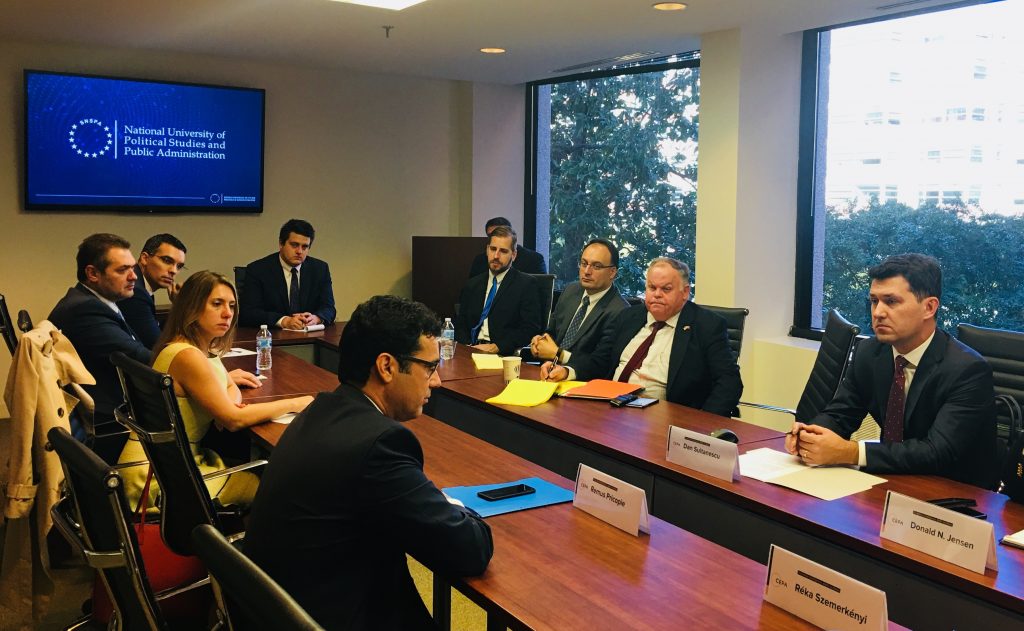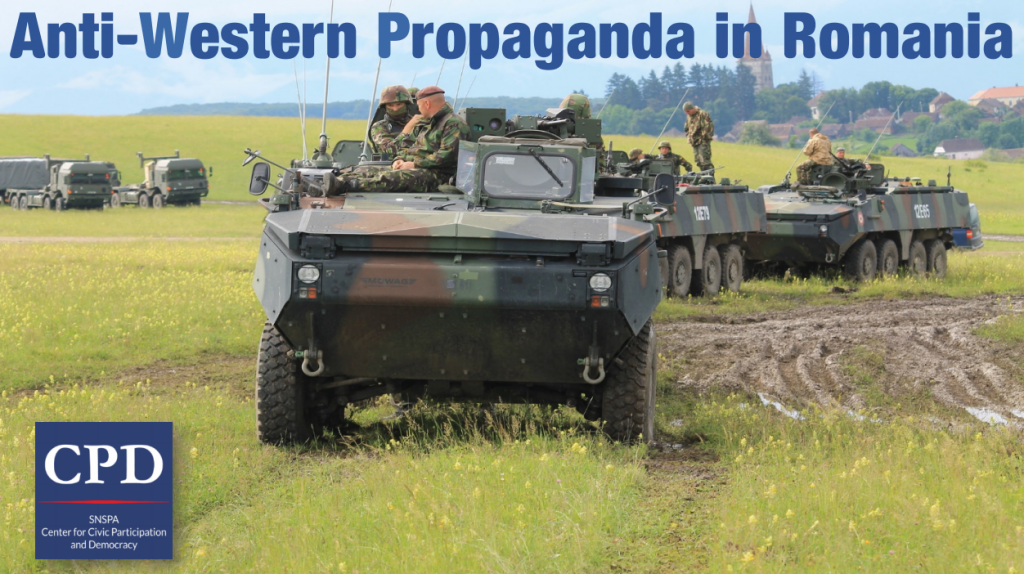On November 2, 2017, CEPA hosted CPD experts to discuss on Russian disinformation in Romania.
The event was attended by CEPA experts, Romanian Ambassador George Maior, representatives of the American administration, think-tanks in Washington, as well as the American press. CPD was represented by its Honorary President, Remus Pricopie, Rector of SNSPA and its Executive Director, Dan Sultănescu.
The discussion was moderated by CEPA Fellow Donald N. Jensen, a former diplomat, and specialist in Russia’s foreign and domestic policies, and considered: what types of narratives and tools the Kremlin deploys in Romania; how can we track and evaluate the impact of Russian disinformation; what technologies and instruments are at our disposal for identifying and debunking fake narratives; and how do we field a common, regional approach to combating Russian-led disinformation?
Remus Pricopie stressed that Russian propaganda is not new, but the communication tools are new. The propaganda uses a multi-layer approach. CPD the newest SNSPA research center tries to understand how propaganda is used to influence Romanian society, in order to learn how to counter it. For this to be successful, it is important to build ties with different institutions and to stimulate cooperation.

Corina Rebegea, CEPA Fellow presented some results of CEPA’s work regarding disinformation, including several narratives frequently used:
- The West is the disguised enemy of Romania; NATO & the US are invaders; the investment in defense = waste of money;
- Russia is great, and also Russia is to be feared = source of danger & salvation;
- The neo-colonial narrative: Romania is a colony of the West/US, a victim of exploitation;
- The nationalist approach – stimulating both types of nationalism present in Romania: nationalism by fear and nationalism of pride.
She pointed out that these narratives exploit preexisting fears, including the Romanians’ fear of abandonment. We’re still not sure how effective they are.

Amb. George Maior said that the study presented by the CPD is remarkable by analyzing the complex instruments used by Russian propaganda that affect not only Romania but the whole region of Central and Eastern Europe. He also stated that Romania is not a classic target for Russian propaganda given the pro-Western options of the majority of the population. However anti-Western narratives have been increasing in recent years in Romania. They aim at vulnerability to the state, influencing public policies in key areas, eroding confidence in the values of liberal democracy, in NATO, in the European Union, in the partnership with the United States of America through the constant rolling of fake news through channels and messengers increasingly diverse, most of them lacking credibility but insistence.
Dan Sultănescu stressed that although Romania is regionally one of the countries with a strong anti-Russia orientation, the Romanians are, along with the Polish, the only Europeans considering that the influence of the US will be smaller than that of the EU in 2030! He also stated that the Western world has more than one voice in Romania, the pro-Western public being divided: pro-US (19%), pro-EU (19%), anti-Russia (14%), skeptical/pro-West (13%). The CPD Executive Director argued that new media is shaping the public agenda and the new generations are the most vulnerable to anti-Western propaganda.

Dan Sultănescu presented the CPD proposals to counteract efforts of disinformation and propaganda targeting the Romanian public:
- Increase positive promotion of common events (Romania and its Western allies);
- Educate youth on the virtues of the West (liberal democracy);
- Acknowledge the propaganda threat;
- Increase civic participation;
- More research.
